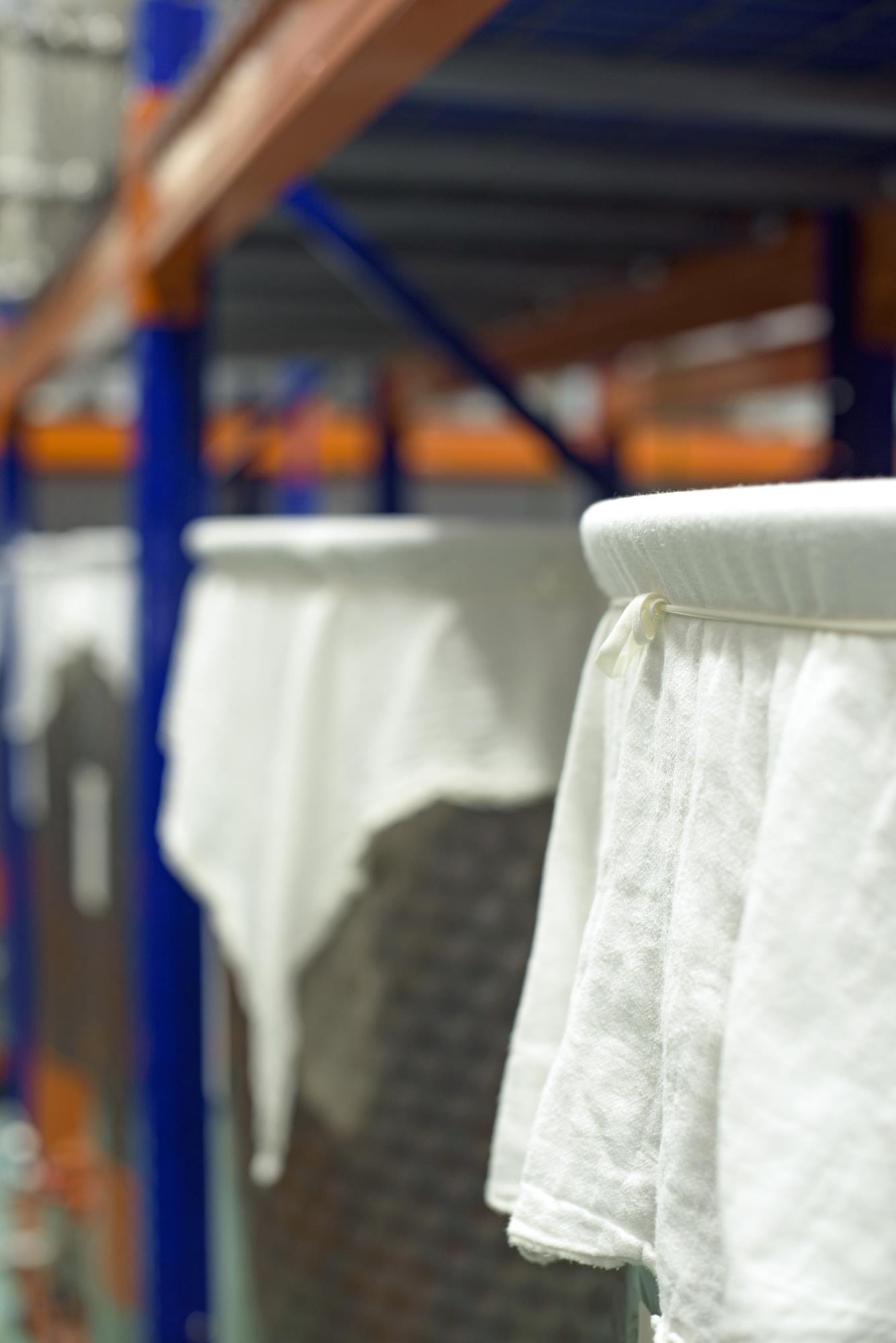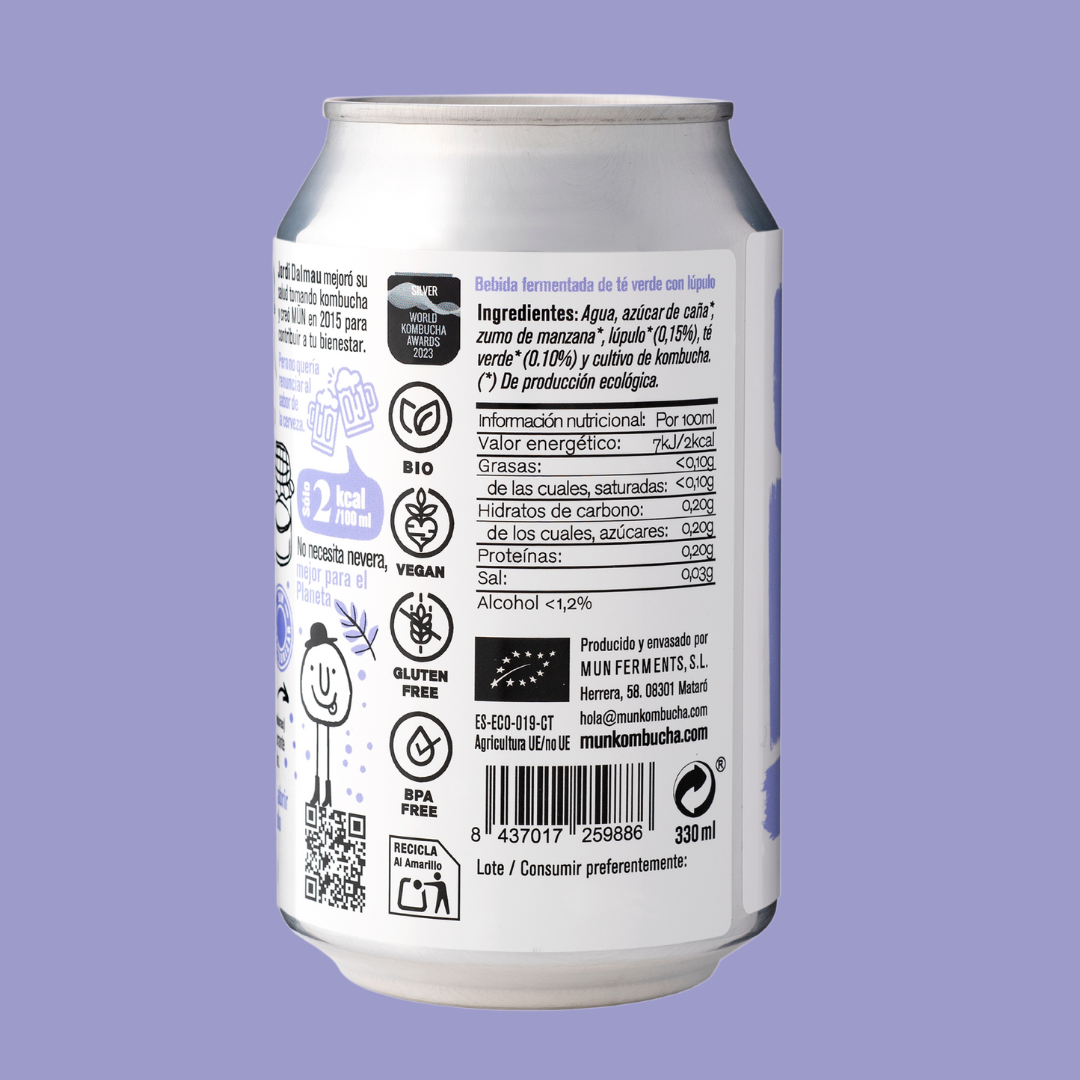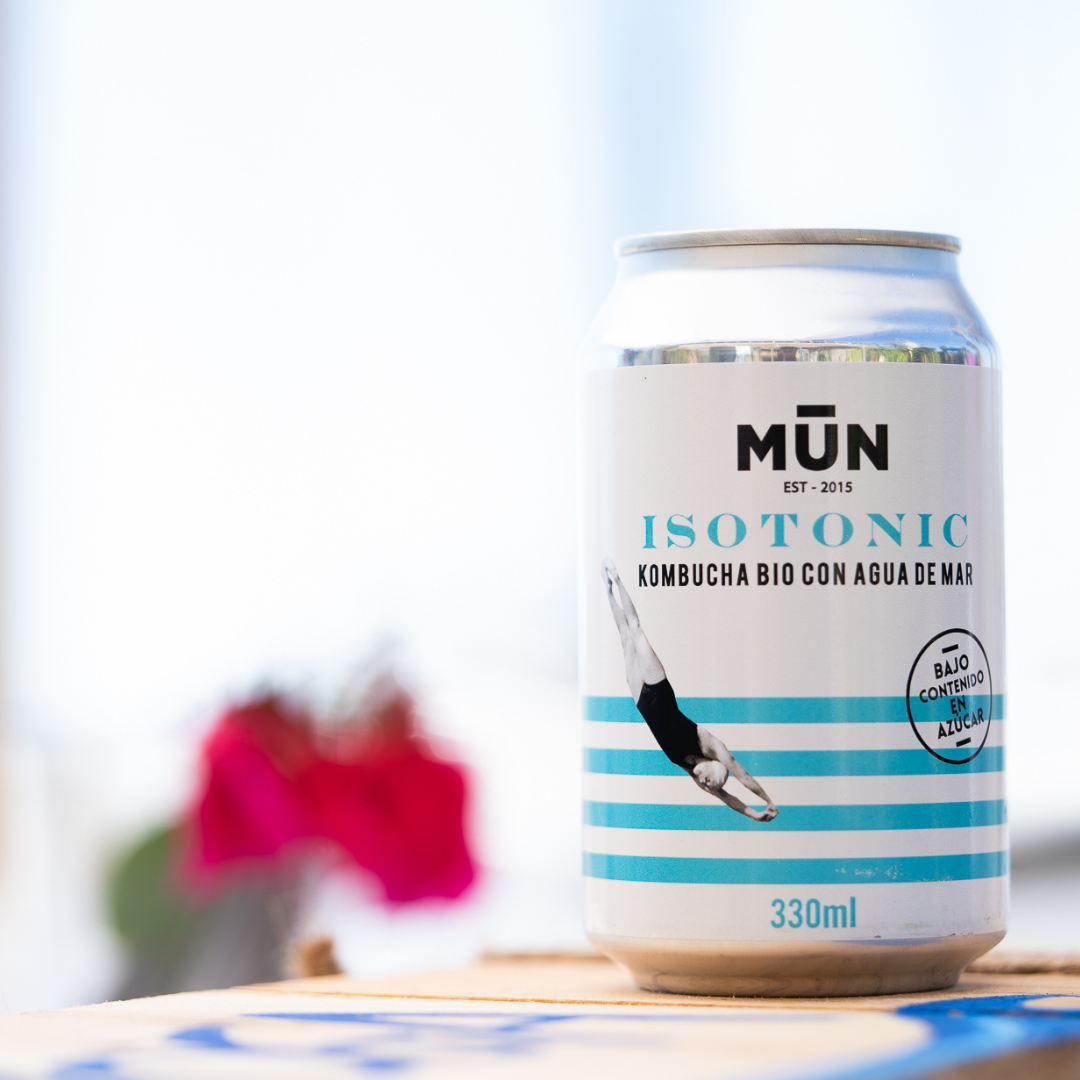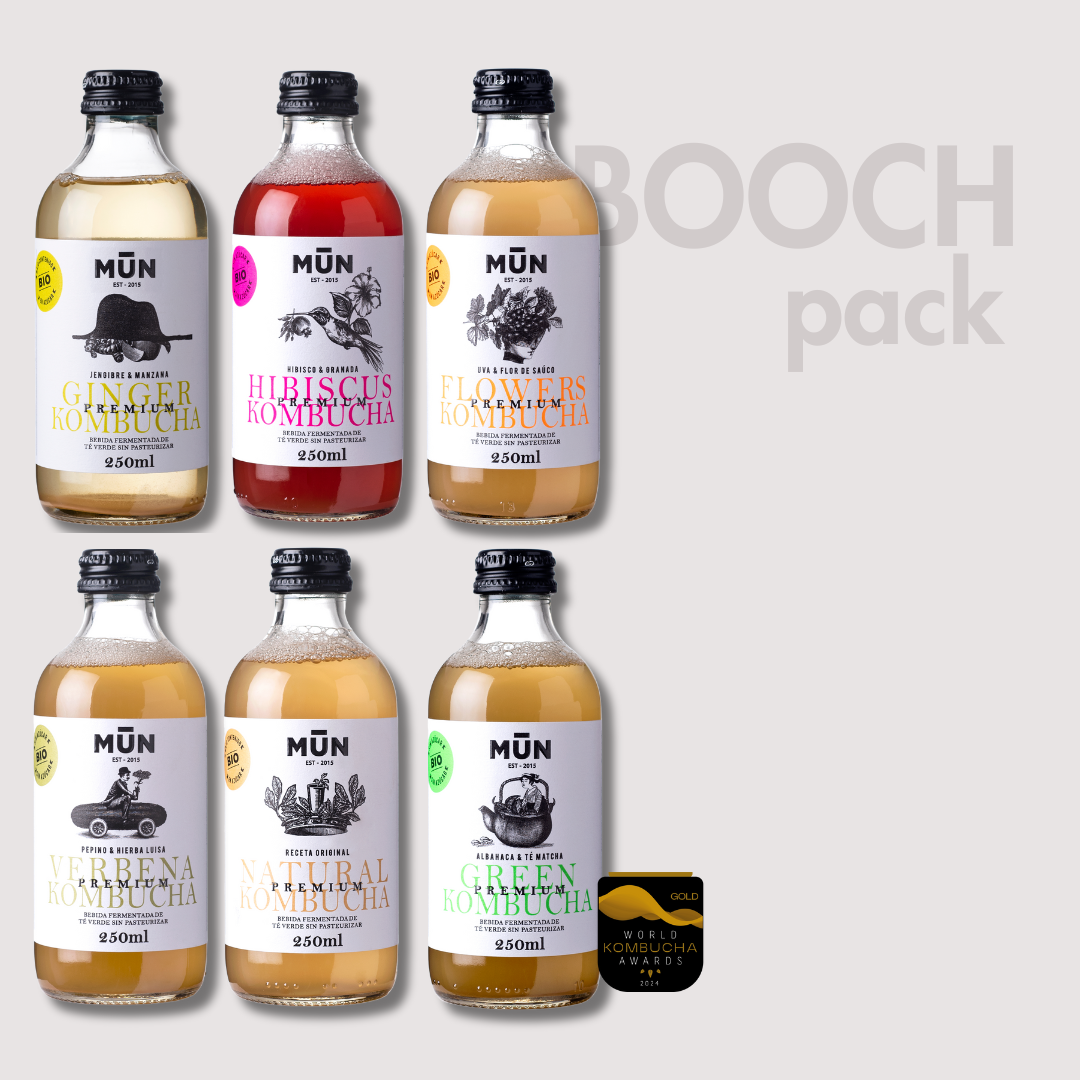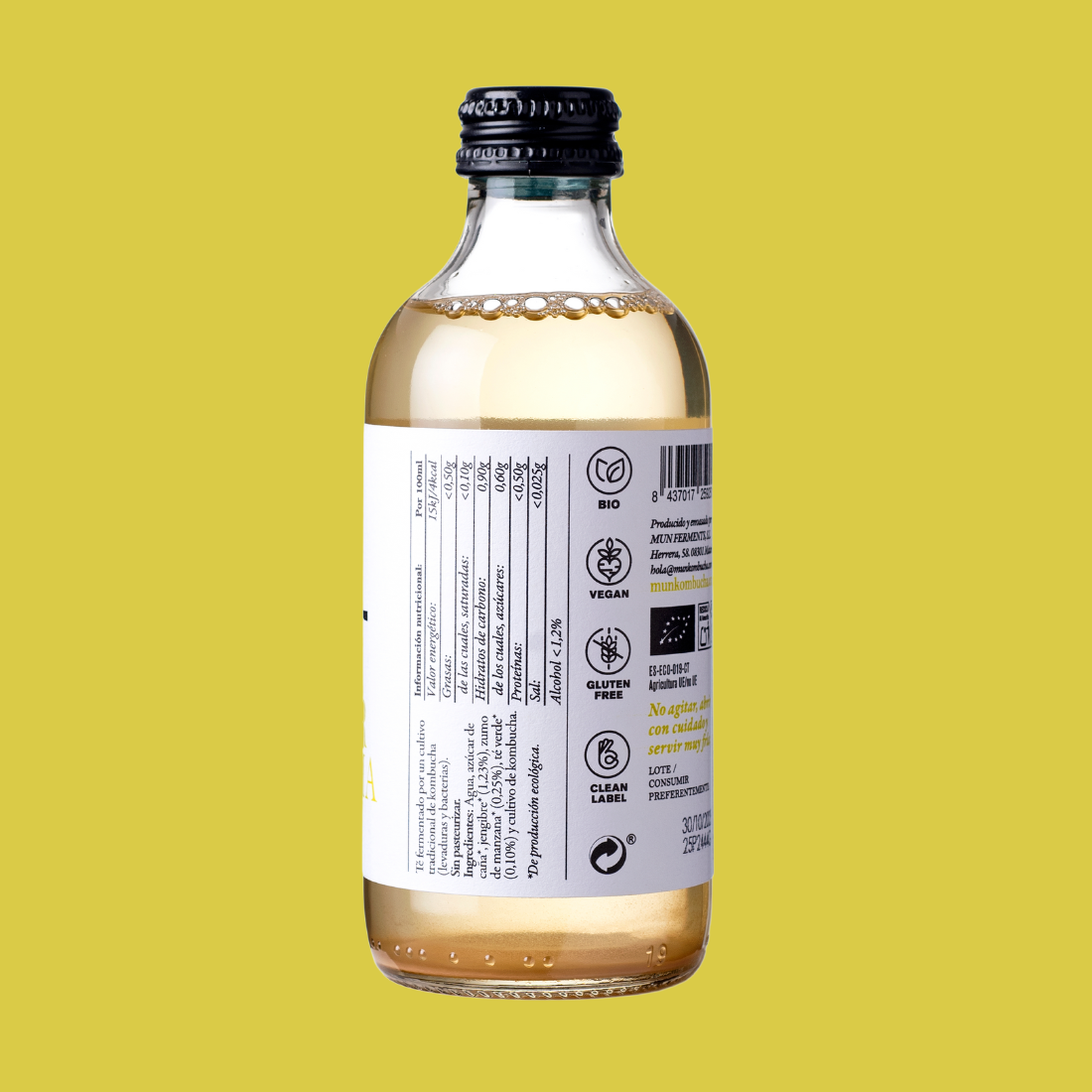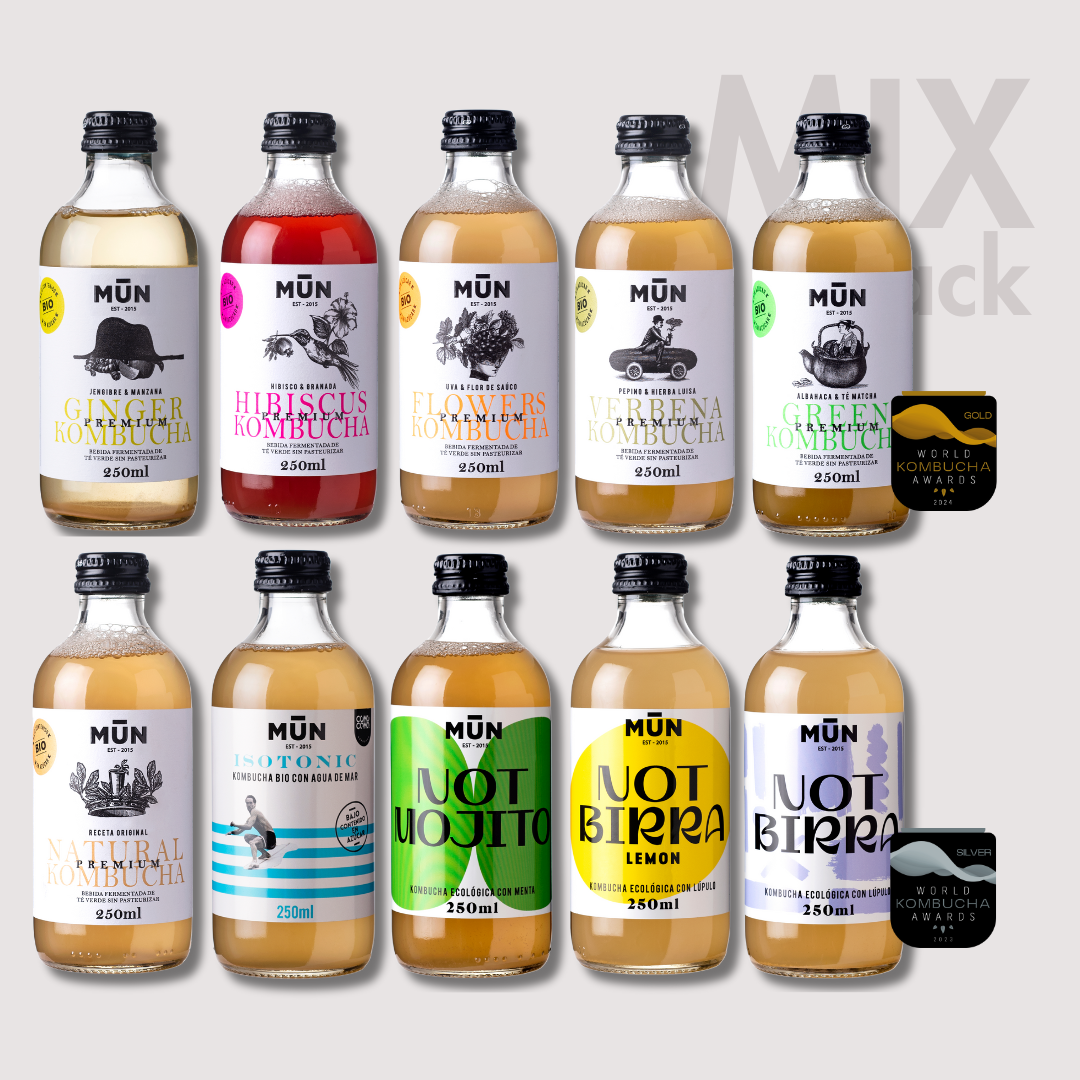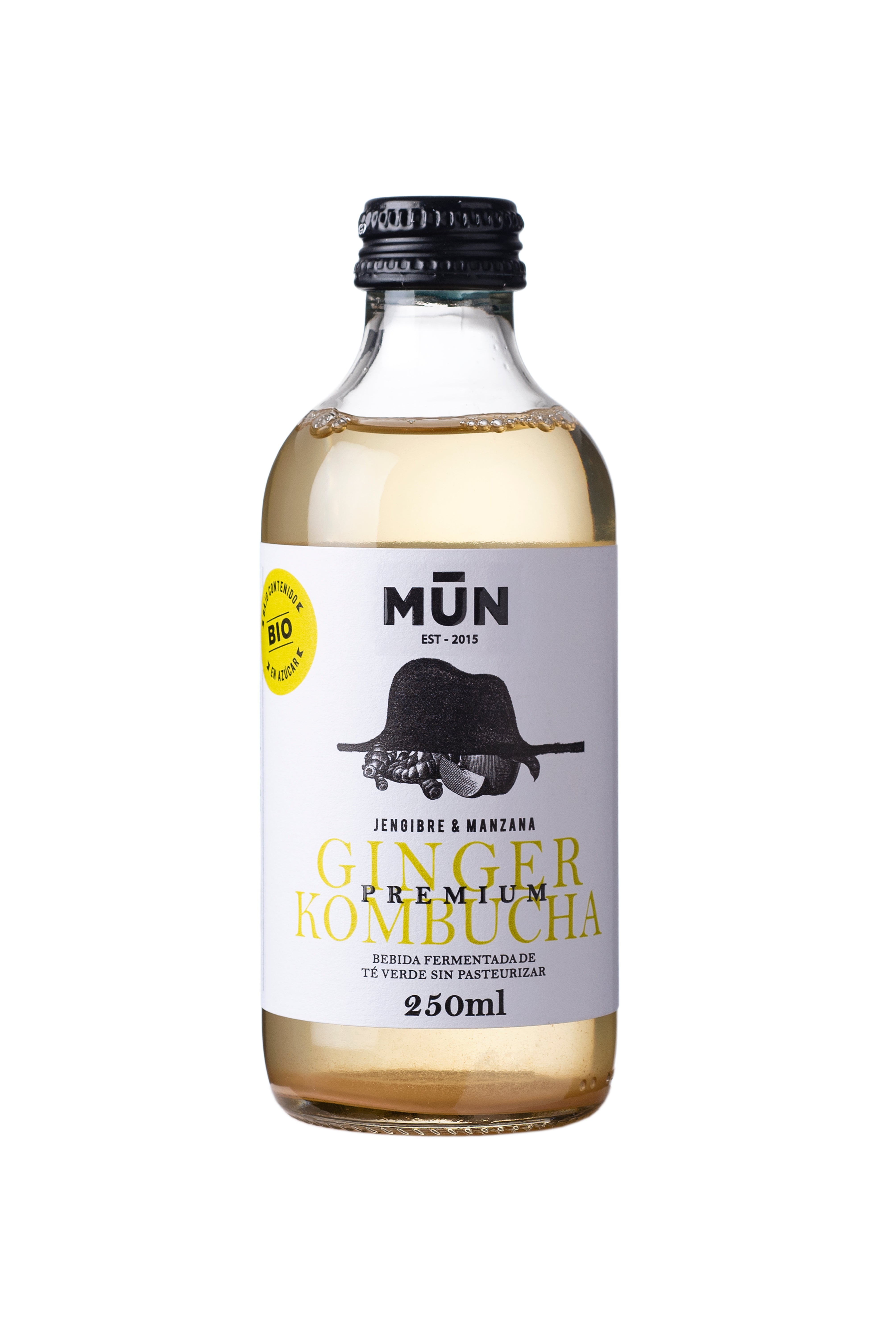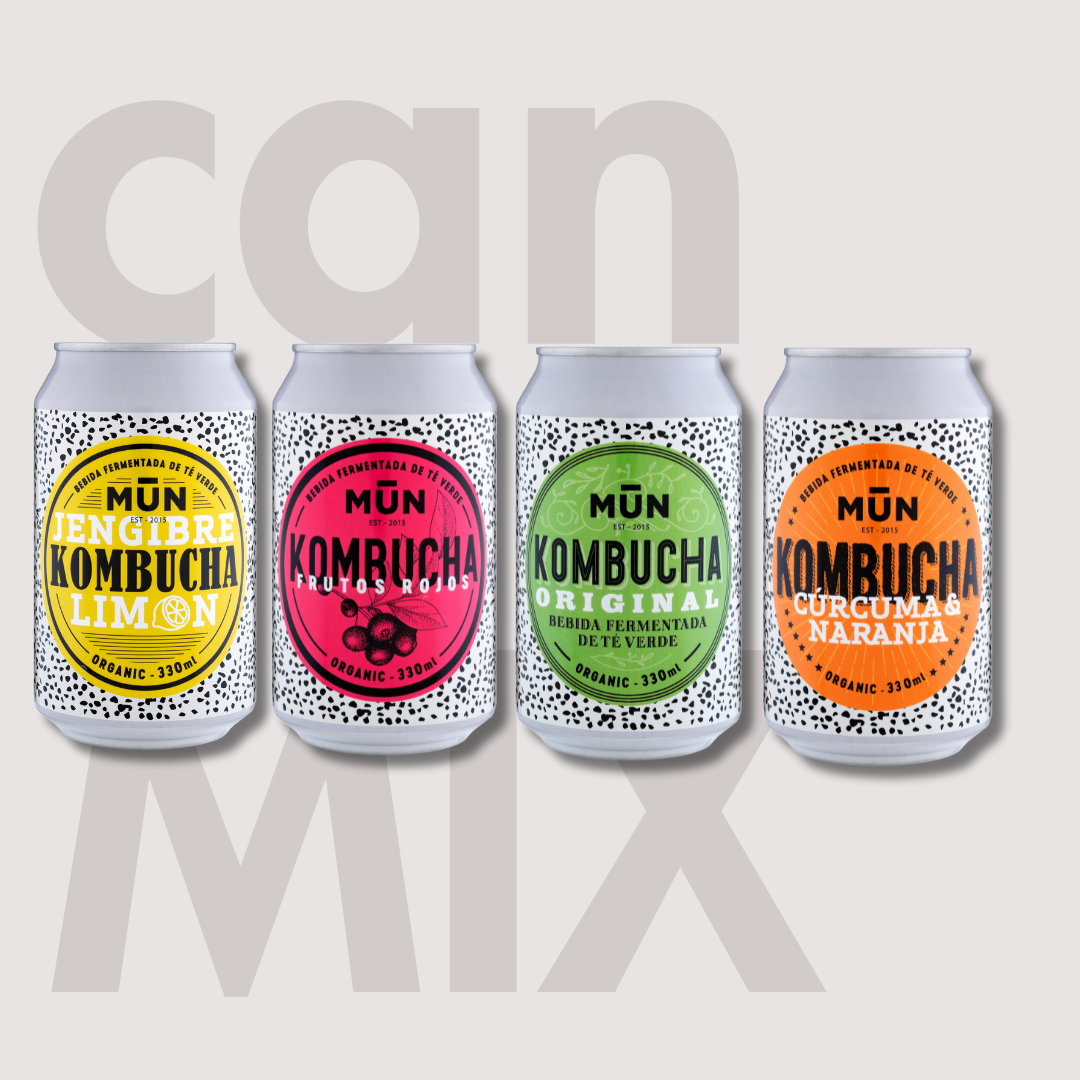Microbiota, intestinal flora, probiotics, prebiotics... All are essential for your overall health. If you want to know how to take care of your digestive system and therefore, how to keep your intestinal flora in shape, you have come to the right article. We are going to break down all these terms so that you can incorporate them into your life very easily.
Microbiota, intestinal flora, probiotics, prebiotics... All are essential for your overall health . If you want to know how to take care of your digestive system and therefore, how to keep your intestinal flora in shape, you have come to the right article. We are going to break down all these terms so that you can incorporate them into your life very easily.
Did you know that trillions of live microbes reside in your intestines? Do not panic. They are small and may not give you much confidence a priori, but we have to tell you that they greatly help you have optimal health. Among others, they are capable of controlling your mood by producing neurotransmitters as important as serotonin and dopamine . It is important that your microbiota, also known as intestinal flora, is diverse and balanced. Your digestive system and your immunity will benefit.
What can you do to have a healthy and also very happy intestinal microbiota?
Continue reading. If you have come this far looking for how to improve your intestinal microbiota, we suggest 10 steps that you can include in your daily life to achieve it:

1| Vegetables are your friends (and your flora) . Prioritize green leafy ones: lettuce, spinach... and also artichokes, asparagus, broccoli and onion... They have a lot of fiber that is not digested by us, humans, but that delights the good bacteria that live in our bodies. bowels.
We already see them dancing to the rhythm of a good green accompaniment!
2| Say goodbye forever to processed foods and sugar. Quickly digested sugars (monosaccharides) are digested too quickly, pardon the redundancy, for intestinal bacteria to take advantage of them. If you regularly consume a lot of simple sugars, your microbiota may die of starvation due to lack of fuel. The starved bacteria will resort to eating away at the lining of the intestines, causing inflammation . Complex sugars
are on the other side of the scale: they will make your flora happy and healthy at the same time. This group includes bananas, apples, red fruits, mangoes, sweet potatoes and potatoes, legumes and coconut flour, for example. Be very careful with nut creams, protein bars... They are hidden sources of monosaccharides!
3| Probiotics, those great friends. Full of live bacteria, probiotics will help you have a varied microbiota. You can add them to your daily life through supplements and also through probiotic foods . Remember to ask your health professional which ones are most appropriate for your condition, if you choose to take them as a supplement. Not all of them are suitable for everything or for everyone.

4| Avoid antibiotics. On the other side of the scale are antibiotics. They certainly heal a lot of infections, but they are not selective. Thus, they are fantastic for curing diseases, but they are fatal for your microbiota. We suggest that when you buy meat products, look for ones that have not been raised with antibiotics, to begin with.
If you inevitably have to take them to kill pathogenic bacteria, don't hesitate to take a probiotic during or after treatment to help replenish your intestinal bacteria.
5| Prebiotics? Yes please! Literally, prebiotics are food for your microbiota. Since this is crucial for your good vibes, for your digestion to be perfect or for your immunity to go at full speed, it is better to take care of it, don't you think? Always have in your pantry: whole grains, root vegetables and leafy vegetables, apples, bananas, onions, garlic, asparagus, nuts, seeds, green tea, peas and lentils... and you will be well served. You can expand this information in this article on our blog . If you cook and then cool complex carbohydrates from tubers like potatoes or sweet potatoes, you will get resistant starch . This starch is one of the favorite foods of bacteria. A real treasure. So, now you know, if you have leftover potato omelette, keep it in the refrigerator and eat it for breakfast without heating it (or heating it very little) to take advantage of the benefits of resistant starch.

6| A true gem: fermented foods. It is the easiest way to add probiotics to your daily life. Surely you have incorporated many of them, without knowing it, into your life. Yogurt, unpasteurized cheese, miso, sauerkraut, kefir, kimchi, olives, kefir… and kombucha, of course . It has been said to vary. The possibilities are almost endless. In this article, we tell you which are the 18 fermented foods that you can easily incorporate into your daily life. We are sure that you will love reading it and, above all, putting into practice the advice it summarizes.
In this other entry on our blog, we explain how to make probiotic foods from scratch , only with real ingredients that you surely have in your pantry. You'll be surprised how easy they are to make and how delicious they can be!
7| Be careful with the meat you consume. It is good that you have red meat in your diet , but you look with forty eyes when choosing it: that it is from animals that have lived in freedom and have fed on grass is important, as is it that they have not been treated. with antibiotics. Don't forget: a diverse flora is ensured by the consumption of different food sources: animal protein, fruits and vegetables.
8| Rest, it's crucial. Respect your circadian rhythms. If you do not sleep adequately, according to some studies , you are doing a disservice to your microbiota and you have more numbers to have inflammatory diseases. Ideally, rest 8 hours at night. Don't expose yourself to screens or blue light of any kind before bed. Try to eat 3 to 4 hours before going to bed.

9| Move please. Food and rest are as important as exercise. If you are active, your microbiota will thank you and you will be healthier . By walking 30 minutes a day you will already have a positive impact on your intestinal health. Get off the metro one stop earlier, park the car a little further away, go up stairs, carry your shopping...
10| Find time for yourself. Stress negatively influences your health. Also in your intestines. Find time for yourself. It is a great investment. Mindfulness, meditation, yoga, tai chi... they are all good ideas to find balance and reduce stress. Deep down it is a fish that bites its tail. Being calm benefits your microbiota and a healthy microbiota will help you manage stress better.
How to improve the intestinal microbiota
Gut microbiota and obesity
Various studies link imbalances in the intestinal microbiota, or dysbiosis , with obesity and metabolic alterations associated with it, such as metabolic syndrome, diabetes or cardiovascular diseases. Specifically, in obese individuals, the origin of the problem is found in an intestinal imbalance of microorganisms belonging to the two large families of intestinal bacteria: Firmicutes and Bacteroidetes .
The work to modulate the composition of the flora is associated with weight loss and it is on this objective that efforts should be focused: probiotics, prebiotics, real food, rest, stress control and movement can be key. Kombucha can also help you lose weight.
Intestinal microbiota and immune system
The microbiota plays a vital role in defending the body against potentially harmful external agents, coming from the diet, but also from the environment or toxins around us (medicines, heavy metals, etc.). To these, our flora is first exposed, subsequently recognizes and, from here, promotes the production of mediators and the generation of responses to maintain immunological intestinal homeostasis.
This exposure begins even before birth, in the mother's womb, when the fetus already encounters bacteria from its mother's flora through the amniotic fluid and in the placenta. Bacterial colonization continues at birth and during lactation.
Daily and continuous exposure, throughout our lives, will train our intestinal flora to be prepared against any external attack and, therefore, remain perfectly balanced. As in everything, success lies in practice.
Gut microbiota and mood
The connection between the brain and the digestive system, also known as the second brain (among others , it has more neurons than the spine) is indisputable. A source of research on different fronts in recent years, this symbiotic relationship is clearly influenced by the type of diet we eat, which can modify the endogenous production of serotonin or dopamine. Some neurotransmitters crucial to having an excellent mood.
With a diverse and healthy intestinal flora, a good mood is assured. It's no joke: a piece of dark chocolate and a little Kombutxa can help you see life in a different color ;)
In summary...
The intestinal microbiota is an incredible ecosystem and its care must be prioritized to enjoy health.
What is the intestinal flora or microbiota? It is the set of bacteria that inhabit our intestine and that coexist in a symbiotic relationship. The vast majority of these bacteria are beneficial to health and contribute to important functions such as digestion or immunity.
In a 70-kilogram individual, the intestinal microbiota weighs about 2 kg and is made up of about 100 trillion microorganisms. There are between 150 to 200 times more genes in an individual's microbiota than in their cells as a whole.
A healthy microbiota has a great richness and diversity of species; It has the ability to resist perturbations such as unbalanced diets or antibiotic treatments and has a great wealth of intestinal genes indicative of good intestinal and metabolic health.
What can you do to improve your microbiota? Since the microbiota intervenes in a wide number of body processes, from the digestion of food to our psyche, it is important to take proper care of it. Among others, you should opt for the consumption of foods rich in prebiotics and probiotics ; avoid processed foods and simple sugars; minimize antibiotic medication and, if we have to use it, rebuild the flora with probiotics appropriate to our needs; respect circadian rhythms, exercise regularly and control stress levels.
95% of serotonin is manufactured by the microbiota
The gut microbiota and the brain are connected through the gut-brain axis, a bidirectional communication network that includes nervous, endocrine, humoral, metabolic and immunological systems. The gut microbiota influences the relationship between the gut and the brain, affecting mental state, emotional regulation, neuromuscular function, and regulation of the hypothalamic-pituitary-adrenal axis.
Your body communicates in ways you're not even aware of. In fact, your brain and gut constantly talk to each other through hormones and neurotransmitters. This is known as the gut-brain axis.
Various clinical, epidemiological and immunological evidence suggests that the intestinal microbiota profoundly influences the relationship between the intestine and the brain, affecting both emotional and cognitive state as well as mental health. A relationship has been established between mood disorders such as anxiety, depression and autism spectrum disorders with functional alterations of the intestine. On the other hand, intestinal diseases such as irritable bowel syndrome and inflammatory bowel disease are often associated with psychological comorbidities related to alterations in the intestinal microbiota. Furthermore, the composition of gut bacteria has been shown to influence fetal and neonatal neurological development, and diet may also influence the impact of gut microbiota on cognitive function.
The gut-brain axis is made up of four main pathways: the neurological pathway, the endocrine pathway, the humoral/metabolic pathway, and the immunological pathway. The neurological pathway includes the vagus nerve, the enteric nervous system, and neurotransmitter activity in the gastrointestinal tract. The endocrine pathway is influenced by the gut microbiota, which alters nutrient availability and affects the release of bioactive peptides from enteroendocrine cells. The humoral/metabolic pathway is related to bacterial metabolites, especially short-chain fatty acids, which have hormonal activity and affect the autonomic nervous system. The immunological pathway is influenced by the intestinal microbiota through the release of cytokines and the immune response in the gastrointestinal tract.
Furthermore, intestinal permeability and inflammation are important factors in the relationship between the intestinal microbiota and the brain. Intestinal dysbiosis and increased intestinal permeability are associated with intestinal disorders, as well as systemic and inflammatory diseases. Intestinal dysbiosis has been shown to affect neurotransmitter regulation and function of the hypothalamic-pituitary-adrenal axis, contributing to the pathogenesis of clinical depression.
Serotonin and the gut: the gut-brain axis
The intestine provides approximately 95% of the body's total serotonin , most of which is found in the blood. Although serotonin has intrinsic functions in the intestines and peripheral metabolism, it is capable of locally activating afferent nerve terminals that are directly connected to the central nervous system.
The conversation between your brain and your gut is known as the gut-brain axis. It involves your central nervous system (CNS) and your enteric nervous system (ENS). Your central nervous system consists of your brain and spinal cord. It controls your thoughts and emotions, as well as your breathing, heart rate, body temperature and the release of some hormones. Your enteric nervous system, also known as your "second brain," consists of 200 to 600 million neurons that move throughout your digestive system.1
Serotonin: the superhormone
Serotonin is one of the four "happy hormones" your body produces, along with dopamine, oxytocin, and endorphins. Each of these hormones performs different functions and provides feelings of happiness. For example, endorphins are released during exercise and act as natural pain relievers, oxytocin is released when you show affection towards others or animals and gives you feelings of love, and dopamine makes you feel proud when you complete a task. Serotonin is the mood regulator, but it does so much more.
The role of serotonin in your body
Serotonin is used in your body for many processes, including regulating sleep, digestion, and your mood. Here are some tasks that this superhormone performs in your body:
serotonin syndrome
For optimal health and well-being, you want your serotonin levels to be in balance, neither too low nor too high. A simple blood test can measure the amount of serotonin in your blood. The normal range for serotonin is 50 to 200 ng/mL.
Symptoms of low serotonin
If you experience depression or anxiety regularly, you likely have low serotonin levels. Here are common signs of low serotonin levels:



